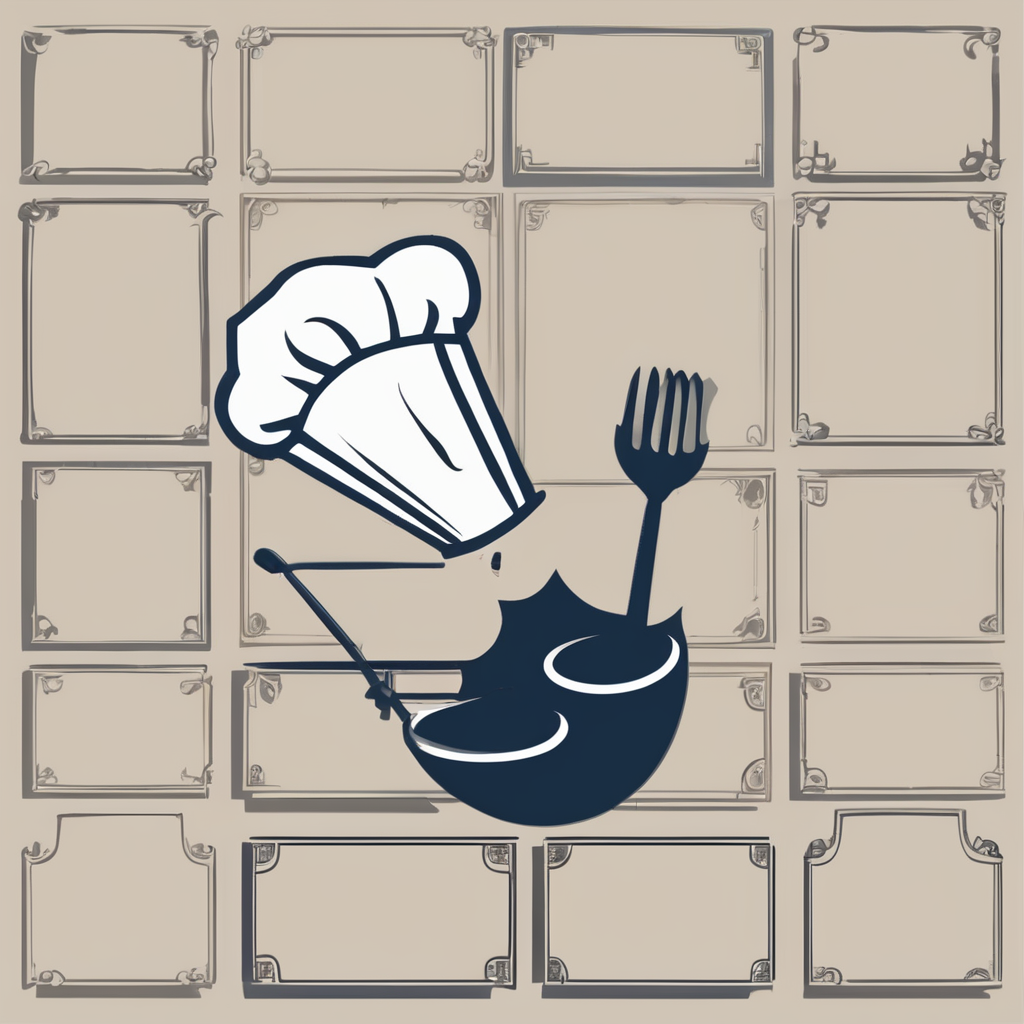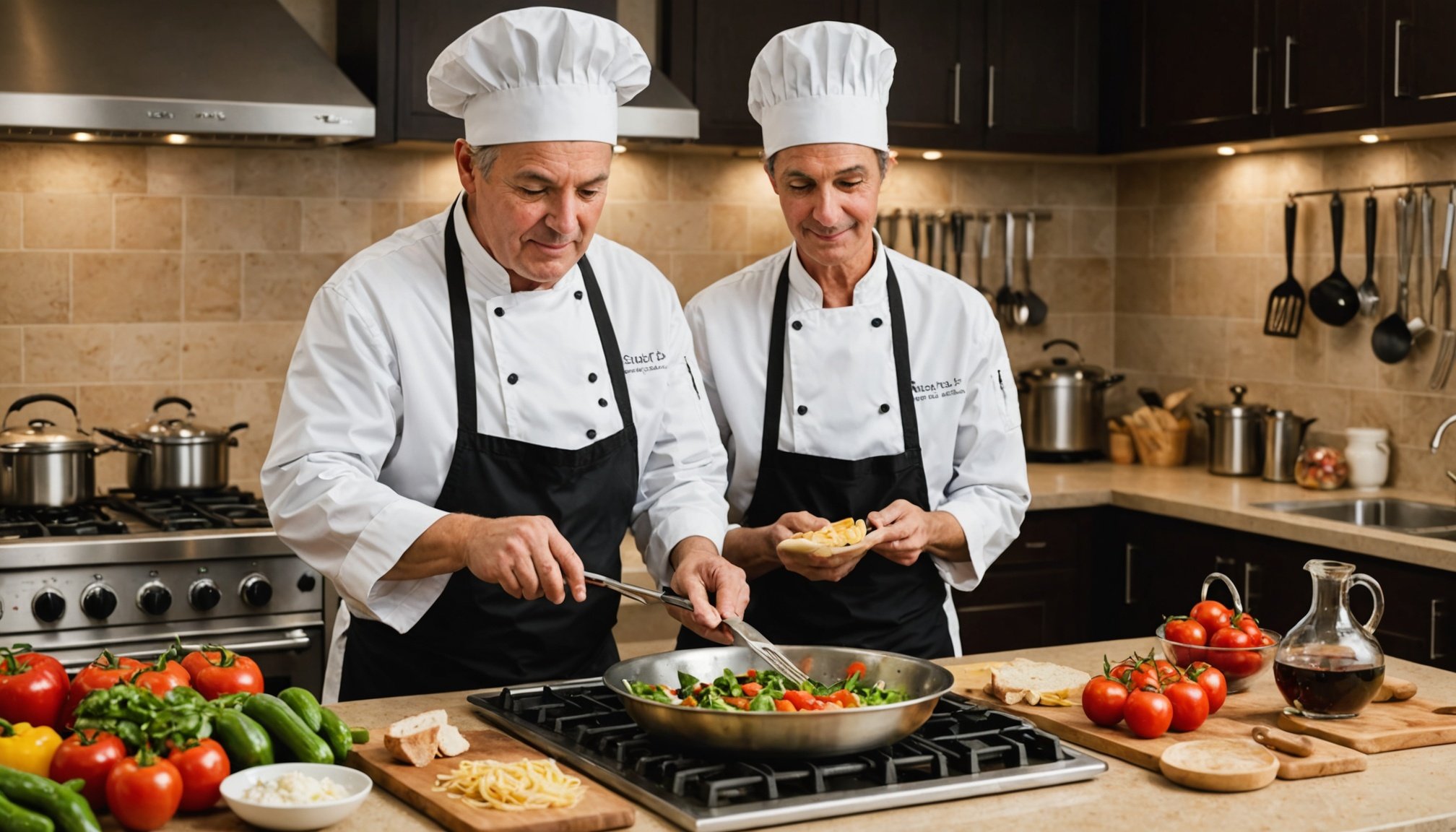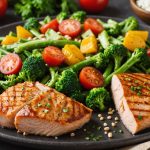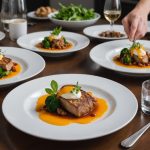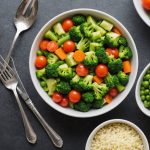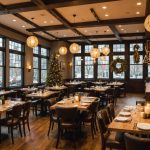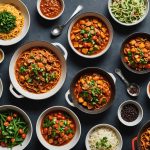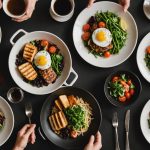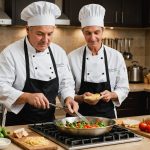In the culinary landscape, mastering advanced cooking techniques can transform your abilities in the kitchen. Whether you are a novice cook or someone with a passion for cooking, learning the intricacies of advanced culinary skills is an enriching journey. This article presents a comprehensive guide to the best resources available for you to enhance your cooking prowess from the comfort of your home. Prepare to dive into the world of cooking, explore various recipes, and discover how the right ingredients can elevate your meals to new heights.
Online Courses and Video Tutorials
The digital age has revolutionized the way we learn, especially in the culinary arts. Online courses and video tutorials offer a rich variety of resources that cater to different learning styles. Websites like MasterClass, Udemy, and Coursera provide access to cooking classes taught by world-renowned chefs who share their expertise and techniques. These platforms often include comprehensive modules that cover everything from baking to gourmet cooking, allowing you to learn at your own pace.
Also read : How do I choose the right kitchen sink style based on my cooking habits?
Moreover, platforms like YouTube are treasure troves of free content. Here, you can find channels dedicated to advanced cooking techniques, where you can watch step-by-step tutorials on intricate recipes. You will benefit from visual guidance, making it easier to replicate complex dishes at home. Some channels even offer specialized classes on molecular gastronomy or sous-vide cooking, which can be incredibly useful if you want to impress your guests with avant-garde dishes.
When choosing an online course, consider the level of instruction and the focus of the course content. Are you looking to improve your knife skills, explore the art of baking, or learn about ingredients and their interactions under heat? Select a course that aligns with your culinary interests and goals. Online courses are not just about learning; they also foster a community of fellow cooking enthusiasts. Engaging with others can provide motivation and inspiration as you embark on your culinary journey.
Also to see : How can I maintain a kitchen garden for fresh herbs and vegetables year-round?
Cookbooks and Culinary Literature
Cookbooks have long been the cornerstone of culinary education. For those pursuing advanced cooking techniques, certain cookbooks stand out as essential resources. Books by chefs such as Thomas Keller, Julia Child, and J. Kenji López-Alt present not only recipes but also detailed explanations of techniques, tips, and the science behind cooking.
When selecting cookbooks, look for those that offer a variety of recipes and focus on technique. Books like “The Professional Chef” provide insights into cooking methods and professional skills that you can apply at home. These resources often include ingredients lists, cooking times, and step-by-step instructions, making it easier for you to follow along.
Additionally, consider joining a local library or a culinary book club to explore a wide range of literature without the commitment of buying books. Libraries often have an impressive selection of cooking literature, from classic recipes to contemporary culinary techniques. This can help you discover new methods and styles of cooking that you might not have considered before.
Lastly, don’t overlook the value of food blogs and online culinary magazines. Many professional chefs and home cooks share their experiences and recipes online, providing a plethora of information that is often free to access. Following these resources can keep you updated on the latest trends in cooking and introduce you to innovative techniques that will expand your skill set.
Culinary Workshops and Community Classes
Participating in culinary workshops and community classes can dramatically enhance your cooking skills. Many cities offer classes through local cooking schools, community centers, or even specialty grocery stores. These hands-on experiences provide direct interaction with instructors, allowing you to ask questions and receive immediate feedback on your techniques.
In workshops, you will engage with other participants, which fosters a collaborative learning environment and boosts your confidence in trying new recipes. From advanced knife skills to mastering the art of baking, these classes cover a wide range of topics. Often, they will focus on specific cuisines or methods, such as Italian cooking, pastry arts, or fermentation techniques, broadening your culinary repertoire.
Moreover, some workshops are designed for specific skill levels, so whether you are a beginner or looking to refine your advanced techniques, you will be able to find something suitable. Look for courses that emphasize practical skills and offer enough time for you to practice. The hands-on nature of these classes makes it easier to grasp challenging concepts while learning from experienced chefs.
Additionally, consider forming a cooking group with friends or family to share knowledge and techniques. This informal setting allows everyone to learn together, experiment with new recipes, and even host themed cooking nights where you can explore different cuisines. The camaraderie will not only make cooking more enjoyable but also encourage the practice of new skills in a supportive atmosphere.
Experimentation in Your Own Kitchen
One of the most important aspects of mastering advanced cooking techniques is the willingness to experiment in your own kitchen. While structured learning through courses and books is invaluable, applying what you have learned is where true growth occurs. Start by selecting a recipe that challenges you, perhaps something involving complex techniques or unique ingredients.
Set aside time to focus on the process without distractions. Gather all necessary ingredients beforehand and pay attention to the cooking techniques required. As you cook, don’t be afraid to make adjustments based on your preferences or the nuances of your available ingredients. This process of trial and error is key to developing your culinary skills and confidence.
Document your cooking adventures by keeping a journal of your recipes and the modifications you made. Not only will this help you track your progress, but it will also serve as a valuable reference for future cooking endeavors. Reflect on what worked well and what could be improved upon next time. This reflective practice helps you internalize the skills and techniques you are learning.
Moreover, embrace the challenges that arise during cooking. If a dish does not turn out as expected, analyze what went wrong and how you can improve. Every setback is an opportunity to learn. Over time, you will find that your ability to cook advanced recipes with confidence will grow, and you will start to develop your unique culinary style.
Conclusion: Your Culinary Journey Awaits
Embarking on the journey to learn advanced cooking techniques is both rewarding and fulfilling. With a wealth of resources available, including online courses, cookbooks, workshops, and personal experimentation, you have all the tools you need to elevate your cooking skills. As you engage with these resources, keep in mind the importance of practice and patience—mastery takes time.
Don’t be discouraged by initial difficulties; every accomplished chef started from the beginning. Use the resources at your disposal to learn, practice, and refine your techniques. Explore diverse recipes, play with ingredients, and most importantly, enjoy the process of cooking. Your kitchen will become a place of creativity and discovery, where each meal is an opportunity to showcase your growing skills.
With dedication and passion, you will not only learn advanced techniques but also develop a deeper appreciation for the art of cooking. So gather your tools, choose your recipes, and let the culinary adventure begin. Your journey toward culinary excellence is just a place away.
